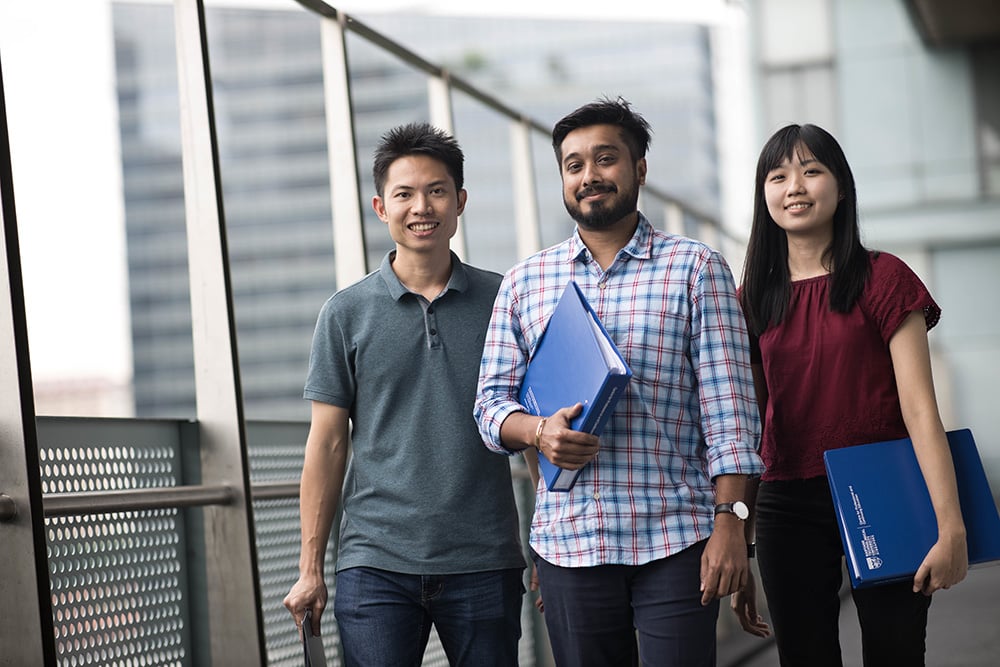Introduction
Carbon neutrality is a World issue as the rise of sea level and major climate changes may have dramatic human, social and economic consequences, globally. In face of such challenges, efforts are deployed to mitigate the man-made carbon emission into atmosphere that slightly modifies the radiation balance and the greenhouse gas effect, but enough to raise temperature by a few degrees. Ideally, one would like to ensure carbon neutrality, that is reabsorb or capture as much carbon as what has been released through energy production from fossil fuels. This course aims to discuss thoroughly these issues.
The course is part of:
- Graduate Certificate in Sustainability — Strategy, Energy, Environment, and Circularity
At the end of the course, learners will be able to:
- quantify the various carbon reservoirs relevant to global warming issues;
- quantify how fossil energy production affects the carbon fluxes;
- explain the basics, the advantages and drawbacks of the main sources of renewable energy, and assess their potential development given technological challenges and future supply;
- explain the basics, the advantages and drawbacks of nuclear energy, fission and fusion, and assess their potential development given technological challenges, future supply, safety issues, as well as political and public opinion challenges;
- explain the current and future solutions for energy storage;
- assess the green solutions for transportation: air, sea, road;
- explain the current and future solutions for carbon capture, use and storage;
- assess the best energy mix within a regional context.
- Class Participation (e.g., active discussion, Q&A)
- Group Presentation
- Final Examination
Suitable for current and aspiring professionals at all levels, from developing sustainability and social responsibility knowledge and skills, including the purpose-driven professionals, engineers, business leaders, entrepreneurs, and the corporate social responsibility and consulting professionals.
Standard Course Fee: S$3,597.00
|
SSG Funding Support |
Course fee payable after SSG funding, if eligible under various schemes |
||
|
Fee BEFORE funding & GST |
Fee AFTER funding & 9% GST |
||
|
Singapore Citizens (SCs) and Permanent Residents (PRs) (Up to 70% funding) |
S$3,300.00 |
S$1,079.10 |
|
|
Enhanced Training Support for SMEs (ETSS) |
S$409.20 |
||
|
SCs aged ≥ 40 years old |
|||
• NTU/NIE alumni may utilise their $1,600 Alumni Course Credits. Click here for more information.

Prof Claude GUET
Claude Guet is a physicist, visiting Professor at the School of Physical and Mathematical Sciences (SPMS) at the Nanyang Technological University, Singapore. He was a Program Director for Research & Students at the Energy Research Institute at NTU (ERI@N) before joining SPMS, where he has played a crucial role to set up the new fusion energy program at NTU, funded by Temasek and NRF. He was a Senior Advisor to the CEO of CEA (French Alternative Energies and Atomic Energy Commission) up to January 2019. Earlier, he was the Chief of Science and Chief of Staff of the French High Commissioner for Atomic Energy. Claude Guet has produced a set of courses on carbon neutrality on how to solve the energy puzzle. He has taught the courses to Chinese students from various universities.
| COURSE TITLE | ACADEMIC UNIT |
| CEL010 Corporate Sustainability: Introduction | 1 |
| CEL012 Electrification & Waste Heat Recovery | 1 |
| CEL013 Environmental Issues and Sustainability in Water and Waste Management | 2 |
| CEL014 Circular Economy-Enabling a Sustainable Future | 3 |
Listed courses are:
- Credit-bearing and stackable to Graduate Certificate in Sustainability — Strategy, Energy, Environment, and Circularity (9 AU).














/enri-thumbnails/careeropportunities1f0caf1c-a12d-479c-be7c-3c04e085c617.tmb-mega-menu.jpg?Culture=en&sfvrsn=d7261e3b_1)

/cradle-thumbnails/research-capabilities1516d0ba63aa44f0b4ee77a8c05263b2.tmb-mega-menu.jpg?Culture=en&sfvrsn=1bc94f8_1)

7e6fdc03-9018-4d08-9a98-8a21acbc37ba.tmb-mega-menu.jpg?Culture=en&sfvrsn=7deaf618_1)





